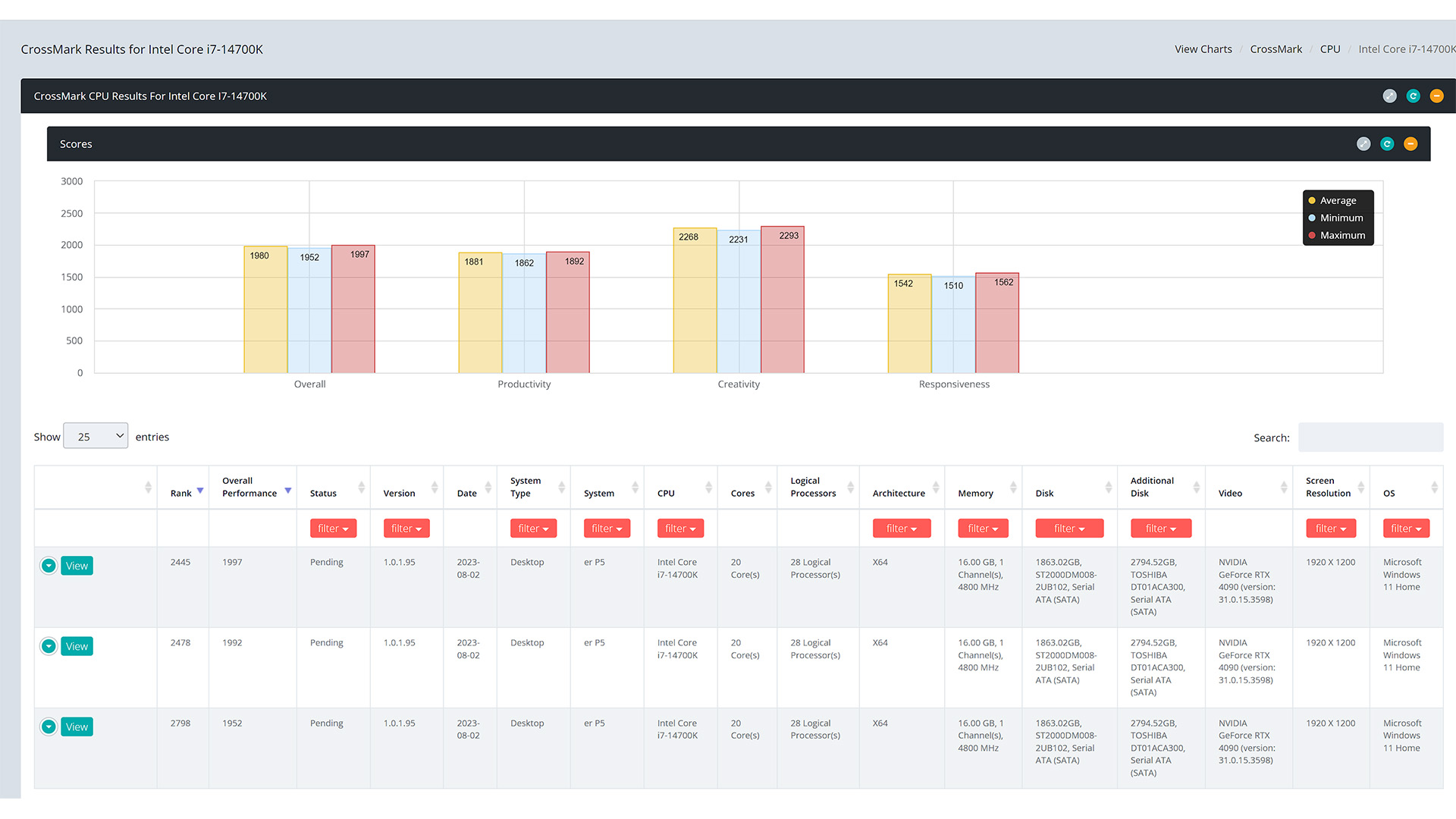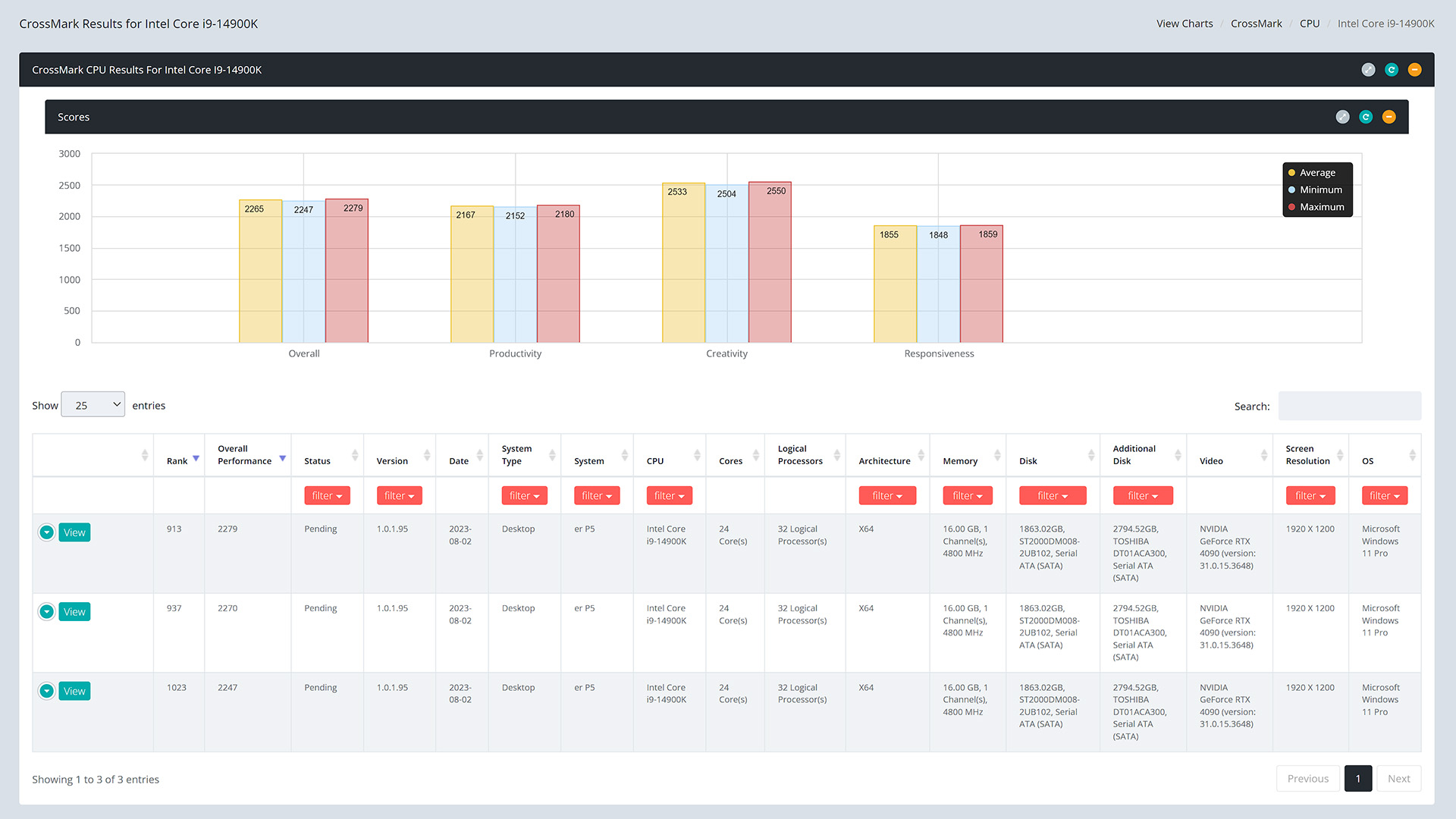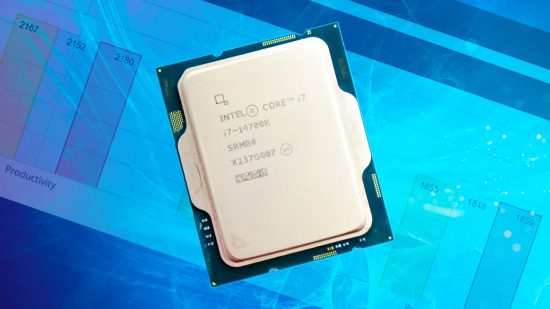A couple of Intel 14th gen benchmark results have just been leaked, enabling us to get a glimpse of what’s in store. The Intel Core i9-14900K and Core i7-14700K benchmark results appeared in the BAPCo CrossMark CPU database, which gauges CPU performance in creativity, productivity and responsiveness.
Before we get to the results, it’s worth having a quick recap on what we’re expecting from the Intel 14th gen lineup. Rather than using a new architecture, these CPUs are widely expected to be based on a refresh of the current Raptor Lake architecture, which is used in CPUs such as the Core i9-13900K.
There are going to be some changes to clock speeds and core counts, though. Most notably, the Core i7-14700K (which will possibly be called the Core 7 Ultra 14700K) is expected to have 12 E-Cores and eight P-Cores, giving it four more E-Cores than the Core i7-13700K. It’s also expected to have a 5.5GHz boost clock, compared with 5.4GHz on the 13700K.
Meanwhile, the Core i9-14900K is expected to maintain the eight P-Cores and 16 E-Cores of the Core i9-13900K, but have a higher clock speed, with the Intel Thermal Velocity Boost clock speed touted to be 6GHz in leaked specs. Intel 14th gen CPUs are also expected to support DDR4 and DDR5 memory, and run on LGA1700 motherboards, providing a further upgrade path for owners of older LGA1700 systems.

Intel Core i7-14700K benchmark results
Back to the CrossMark results, which were spotted by Twitter user HXL, the Intel Core i7-14700K gets an average score of 1,980 in CrossMark, with an average of 1,881 for productivity, 2,268 for creativity, and 1,542 for responsiveness. Frustratingly, while the specs of the test system include a high-end GeForce RTX 4090 graphics card, they’re let down by the use of a 16GB single-channel 4800MHz memory setup and a SATA SSD system drive.
Add the fact that this is very likely to be an early engineering sample of the CPU, and it’s unsurprising that the Core i7-13700K gets much higher average results. Comparatively, the Core i7-13700K averages 2,222, thanks to a large number of submitted results based on higher-spec test systems and finished silicon. Importantly, however, the results page lists 20 cores and 28 threads, which is in line with the rumored specs of the Core i7-14700K.

Intel Core i9-14900K benchmark results
The Core 19-14900K appears to have been benchmarked on the same test system as the Core i7-14700K, so the results aren’t going to blow you away. However, they do show a marked increase in performance over the Core i7 CPU. The Core i9-14900K average overall result is 2,265, with its extra cores and higher clock speed improving performance across the board.
While these results are disappointing, we’re expecting much better performance from the Intel 14th gen lineup when it’s finally released later this year. With a better-balanced test system, along with the latest motherboard BIOS updates and CPU silicon, the extra cores and clock speed should give the Core i7-14700K a healthy boost over the Core 17-13700K.
In the meantime, if you’re looking to buy a new CPU, make sure you read through our full guide to the best CPU for gaming, where we give you a run down on all the best options, whatever your needs and budget. One of our favorite choices from the current Intel lineup is the Core i5-13600K, which offers great performance for a cheap price, and you can overclock the Core i5-13600K as well.
Are you excited about Intel’s new Raptor Lake refresh CPUs? Tell us what you think on the Custom PC Facebook page, via Twitter, or join our Custom PC and Gaming Setup Facebook group and tap into the knowledge of our 400,000+ members.
